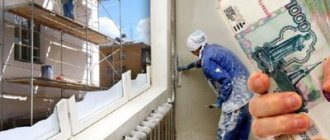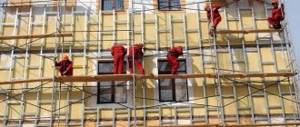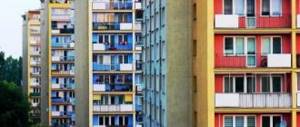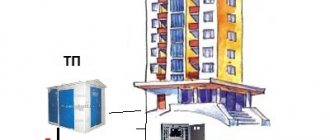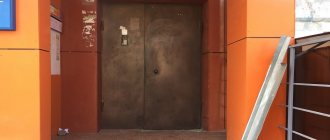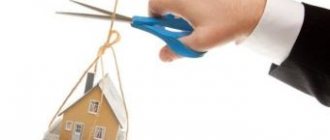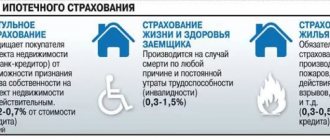Overhaul - what is it?
- Good afternoon! Major repairs are a relatively new type of expense on a receipt, which is why it still raises so many questions among payers. Looking ahead, I will answer right away - you need to pay for major repairs.
The Housing Code of the Russian Federation gives the following definition to overhaul - this is a set of works carried out to restore structures, elements, replace utility networks and even some load-bearing elements. Major repairs also include updating common house and yard property (provided that the yard is subject to the control of the management company and not the municipality).
Examples of actions within the framework of a major overhaul: installation of a new elevator cabin, replacement of common house metering devices (meters), installation of PVC windows in the entrance, insulation and waterproofing of walls, alignment of partitions, landscaping of adjacent areas, etc.
In other words, the service carrying out major repairs is responsible for the comfortable living of residents, as well as planned and emergency renovations of a residential building.
Quality control of major repairs
Preventative maintenance of a house in optimal technical condition involves periodic inspections and monitoring of the condition of communications and various systems, maintaining their performance.
It is financed from the capital repair fund, which is formed from mandatory contributions from residents. The size of the established contributions depends on the region of residence, the size of the apartment, the presence of an elevator in the building and, in fact, the age of the building. If desired, residents of the house can transfer more than the established contribution. Such issues are resolved by a general vote of owners.
The downside is that the fund is limited. The presence of certain contractors and holding competitions is a long process,” Andrey Kostyanov noted. “In the second case, you have an organizational burden, but on the other hand, you have a wider choice of contractors, and you have the opportunity to order additional work.”
A regional operator is a non-profit organization created in each region of the Russian Federation. Its task is to ensure that major repairs are carried out at the expense of the owners’ funds accumulated in the account of the regional capital repair fund. If you want to save time, then this option is suitable, given that the company will provide information on income and expenses upon request.
Where do the funds come from?
Many people believe that the state allocates funds for major repairs of residential premises. This was the case during the USSR, when most of the apartments belonged to the state, and the privatization procedure changed the payment procedure.
Now, apartments are the property of citizens, and, therefore, the responsibility for maintaining both square meters of residential premises and common property lies on the shoulders of the owners.
The owner answers:
- behind the attic;
- for the basement;
- for the entrance;
- for local areas.
Breakdown of the heating system in an apartment building: when responsibility falls on the management company, and when the owner of the premises is to blame
The size of the capital repair fund and sources of its formation
If the owners understand that living in an apartment building is life-threatening, they need to contact their municipality with a request to recognize their building as unsafe. Within 30 working days, the relevant interdepartmental commission reviews the application of the homeowners, conducts an inspection of the building and makes a decision whether the house is in disrepair.
The amount of the contribution does not depend on the number of persons registered in the residential premises or its location. The payment amount is determined only by the characteristics of the residential building (year of construction, number of storeys, type of materials), if such differentiation of the contribution amount is provided in the given region, and by the number of square meters of the premises.
And when it’s your house’s turn, the money will also be taken from the funds of the residents of other houses,” explained Andrey Kostyanov, deputy executive director of the NP Housing and Communal Services Control.
The amount of the contribution does not depend on the number of persons registered in the residential premises or its location. The payment amount is determined only by the characteristics of the residential building (year of construction, number of storeys, type of materials), if such differentiation of the contribution amount is provided in the given region, and by the number of square meters of the premises.
You can find out how to accumulate funds for major repairs in your home on the website of the Capital Repair Fund for your region.
Of course, this is a rather complicated procedure. In 2020, only 27 houses across Russia received this type of support. Deputies of the State Duma of the Russian Federation have already proposed to simplify the procedure for obtaining financial support for major repairs. However, the corresponding bill has not yet been adopted.
It is this organization that is in charge of the possible expansion of allocated funds for major repairs if, as a result of the analysis, hidden deficiencies are identified that were not taken into account when drawing up the main repair estimate.
In this article we will talk about the procedure for carrying out major repairs. First, you will learn how a major renovation differs from a current one. In addition, we will tell you what legislation governs major repairs, how it is financed and who controls the progress of the work.
The formation of a “white list” of contractors that fully meet the requirements for performing work will take place on the territory of each subject. To get into it, the company must have the appropriate qualifications, work experience, and qualified employees. According to the order, specialized commissions will be created to select contractors in the regions.
Information on the pre-selection of contractors attracted by the Fund for the Capital Repair of Apartment Buildings in the city.
What happens if you don't pay?
In Art. 169 of the RF Housing Code contains the following excerpt:
“Owners of premises in an apartment building are required to pay monthly contributions for major repairs of common property in an apartment building, except for the cases provided for in Part 2 of this article, Part 8 of Art. 170 and part 5 of Art. 181 of this Code, in the amount established in accordance with Part 8.1. Art. 156 of this Code, or, if the corresponding decision is made by the general meeting of owners of premises in an apartment building, in a larger amount.”
Thus, contributions for major repairs are mandatory, and in the absence of receipts from the owner to the account of the regional operator, penalties, interest or other types of sanctions may be applied.
Regional program for capital repairs of apartment buildings
Moreover, if the previous owner of the property abused non-payments, the debt passes to the new owner of the square meters. If the commission’s decision is positive, an acceptance certificate is drawn up and signed by all its members. The date of signing the act is the date from which it is worth counting the moment of putting a residential multi-apartment building into operation.
This fund allocates funds to local administrations, which themselves distribute them in accordance with the existing plan for the year, increasing one or another fund of a single apartment building.
Residents can organize major repairs themselves. In this case, the Overhaul Fund is formed in a special account.
According to the law, the act of acceptance of completed overhaul work is agreed upon with the owners of apartments in the building. They are elected at a general meeting of owners.
Benefits and subsidies for paying contributions
If the owners of premises in an apartment building are not satisfied with the chosen method of forming a capital repair fund or they missed the six-month deadline for making a decision on its choice, then this situation can be changed at any time based on the decision of the general meeting of owners.
A letter arrived in the mail. What is this? According to Federal Law-1789 “Social support program for citizens of the Russian Federation and the countries of the former Union” (Resolution of the Government of the Russian Federation No. 1789-p dated December 11, 2018), a citizen has the right to social compensation.
Complaints should be addressed to the Moscow Overhaul Fund and/or the Moscow Overhaul Department. The department monitors the fund's compliance with all requirements. After completion of the overhaul, complaints are sent to the Moscow Housing Inspectorate.
Ivanov began a webinar explaining the basic concepts of the new system for capital repairs of apartment buildings. In order to monitor the implementation of major repairs, it is necessary to understand how the program for major repairs of the common property of apartment buildings is implemented.
It follows from this that it is possible to finance the development of project documentation, payment for construction control services and the costs of obtaining guarantees and guarantees for loans and borrowings only from interest for late payment of contributions and interest accrued for the use of funds located in a special account, as well as due to the amount of contributions exceeding their minimum amount.
The contribution rate for the Kyrgyz Republic is approved by local regulatory legislation and is annually indexed taking into account the consumer price growth index.
Due to the coronavirus, prices in the rental housing market have fallen and the rules of the game have generally changed. Landlords are making concessions more often, tenants have become bolder and are more often asking for preferences. At the same time, both of them risk falling into the clutches of scammers and are waiting for changes by the fall.
Roof overhaul involves replacing the roof covering, repairing or replacing the supporting structure of the roof, restoring the thermal insulation and water resistance of the roof, and painting the roof if necessary.
Calculation procedure
The updated Housing Code of the Russian Federation prescribes a mechanism for collecting funds for the repair of dilapidated houses. In particular, it obliges citizens to pay appropriate contributions to local special funds. Both homeowners and owners of commercial real estate located in apartment buildings (usually the first floors are allocated for places of sale of goods and services) must contribute to the common pot for the overhaul of common property.
When calculating the amount in the payment for major repairs, the age of the building and the presence of an elevator are taken into account. However, the general scheme for generating a receipt is the same for the entire country - the area of the premises is multiplied by a certain coefficient. But the size of this coefficient is set locally. By the way, often these calculations cause no less bewilderment among the population than the imposed fees for major repairs. For example, the difference in the coefficient in cities with similar living standards as Moscow and St. Petersburg exceeds 10 rubles. And this, remember, is from one square meter.
According to the law, funds for major repairs of high-rise buildings can only be spent on the restoration of common property. This term is explained by Part 1 of Article 36 of the Housing Code of the Russian Federation:
- Common areas.
- Flights of stairs.
- Elevator shafts.
- Corridors.
- Technical floors, as well as basements where utilities are located.
- Enclosing load-bearing structures.
- Foundation.
- Load-bearing walls.
- Floor slabs.
- Load-bearing columns.
- Enclosing non-load-bearing structures in common areas.
- Windows and doors.
- Walls separating residential from non-residential premises.
- External entrance doors.
- Fencing of roofs, balconies and verandas.
- Roofs.
- 4.1. Roof of an apartment building.
- 4.2. Roofing of extensions, if they are given for public use.
- Home service equipment.
- Cold and hot water supply systems, as well as drainage systems.
- Gas supply.
- Heating.
- Electricity supply.
- Ventilation system.
- Garbage chute.
- Elevator equipment.
- Fire system.
Thus, residential and commercial owners cannot rely on renovation fees to upgrade their personal properties.
